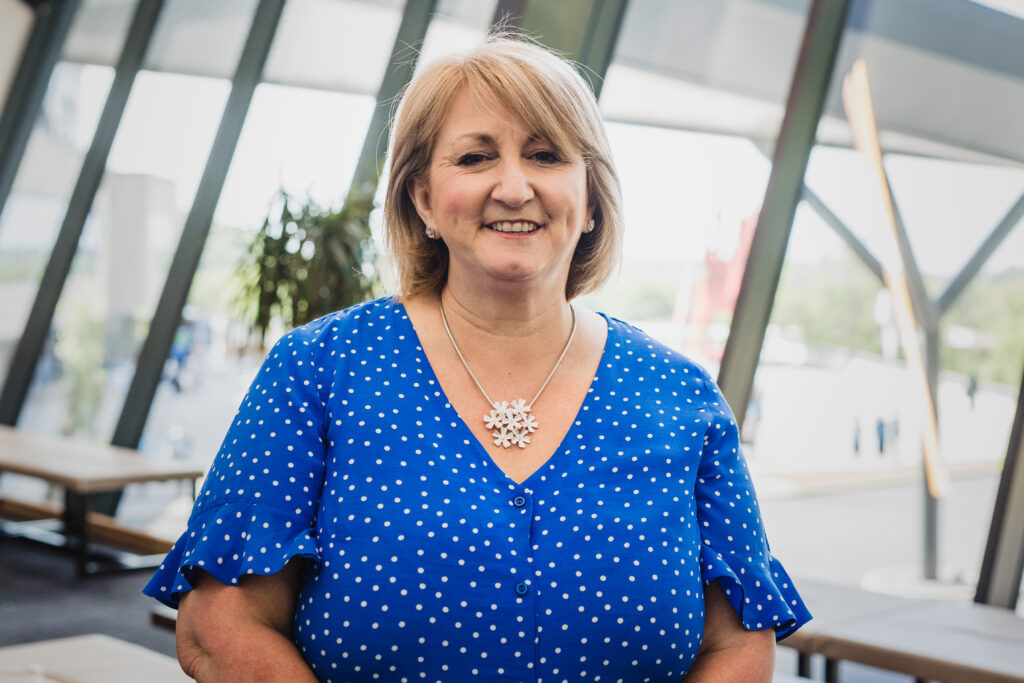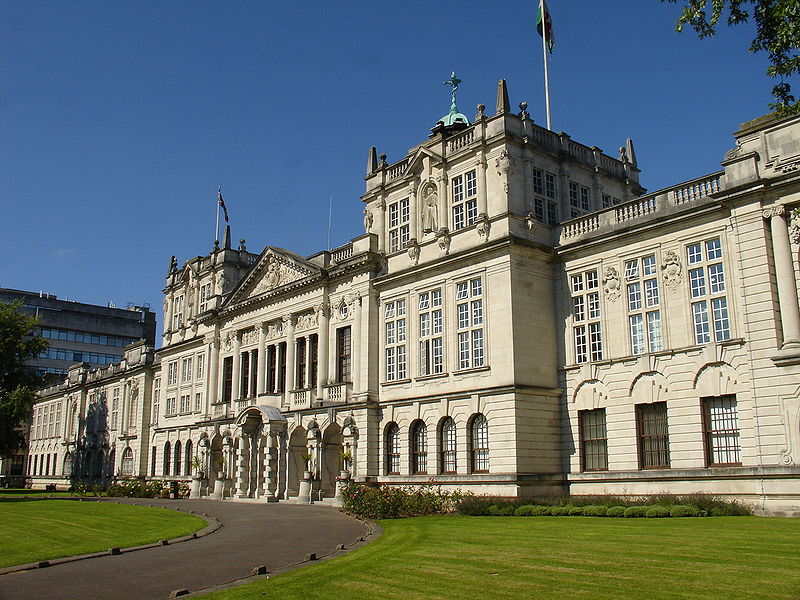Louise Casella argues that more value should be placed on the collective social good of a university education.
Since around the 12th Century, universities here and around the world have operated a model that tells people to come to a place of learning to receive the wisdom of the few.
That idea is founded on the principle that universities must be physical places, where those who possess knowledge can impart to students all they need to know to be set for life.
Still today, almost a millennium later, as educators, and as parents, we value and prize a model that encourages the full-time campus experience for the vast majority of those who study beyond the age of 18.
We celebrate the success of those who gain competitively-won places at our universities, and measure the success of those three or four years of study in terms of career prospects and individual earning potential.
We entrench the expectation that in that first degree, all the skills and information needed to last a whole career are imparted.
The kind of opportunities available to students and learners across Wales are still stubbornly inadequate and rigid.
And what’s more, we hang on to a funding system that places this model firmly at the centre, with anything else being viewed as a deviation from the norm.
However, the way we live our lives has changed.
Not only are we living longer, but we have more varied careers. How we work is also changing, not least in terms of where many of choose to do our jobs.
Our home lives are different too, with more and different pressures and challenges, and a greater focus on well-being and community.
And what was already a changing landscape has, of course, changed even more since the pandemic.
In a speech I delivered recently, I asked colleagues across the education and lifelong learning sectors to imagine being a parent who wants to learn but can’t afford to give up work to study full-time.
I asked them to imagine being a graduate with a couple of decades of work experience under their belt, but who wants to update their knowledge with some bite-sized learning.
I asked them to imagine being a student right now who has been inspired by something they’ve learned and wants to take a year to go and try it out in practice.
Robust debate and agenda-setting research.
Support Wales’ leading independent think tank.
My message was that, in all these cases, the kind of opportunities available to students and learners across Wales are still stubbornly inadequate and rigid.
The truth we know is that, as the world of work changes and as our lives continue to change, the way we all learn will also need to change.
But at the moment, the way we organise our system makes change very difficult to imagine, and all but impossible to deliver.
Over these last decades, our higher education model has become increasingly tough to sustain financially.
And on top of that, its inflexibility in meeting the needs not just of individuals, but of our economy and our society at large, has become more and more apparent.
We concentrate on funnelling as many students as possible into that first degree model and getting them to the end of a full-time qualification.
Sadly, today, the value we place on the individual economic takeaway of higher study outweighs the value we place on the collective social good it creates.
Then, we look at performance measures and league tables that focus on how quickly students get into the workforce after they’ve completed their qualification, together with their earning potential.
Over many years, the way we think about the purpose of higher education has shifted and sadly, today, the value we place on the individual economic takeaway of higher study outweighs the value we place on the collective social good it creates.
We find ourselves in a self-perpetuating cycle in which historic values drive funding, and funding cements those values. It follows that we design curricula and systems that in turn cement our traditional ways of thinking and of delivering learning.
This no longer provides what Wales needs.
In his A Vision for Higher Education speech last year, the Education Minister called on universities to renew their commitment to lifelong learning – to make Wales a nation of second changes – and to help create a national ‘students as citizens’ offer.
That offer, he said, should provide students with not just their core learning, but also a much broader range of skills, competencies, and experiences which equip them to be rounded citizens.
It is a vision that is hard to disagree with, but one which will be difficult to realise without a fundamental resetting of the values we attach to higher education.
That must include changing what we measure as success for institutions and for individual students, and significantly reshaping and rebalancing our funding system.
What would you design and offer if you started from the premise that people should be able to apply to university when they are ready – not just when they are 18 – and should be able to return when they need further knowledge and skills?
Bluntly, our current system of funding for providers incentivises the status quo. It places at its centre, the dominant model of full-time study frontloaded for three or four years at the start of a person’s life.
It tells us that the most important thing – indeed perhaps the only important thing – is getting to the end of your course and getting a job.
And it makes thinking about what else is possible – including flexible study and a lifelong model of learning – challenging given how extremely financially unattractive anything other than that full-time undergraduate norm is for providers to deliver.
What we need is a system which builds on the changes we are all experiencing in the way we live our lives and helps to drive imagination and innovation in the way we deliver our provision, placing learner need at the core.
We need a system which facilities and encourages much more flexibility, for students and institutions alike, and which recognises not just the individual, financial takeaways of higher learning but also its collective, social benefits.
We need a system which not only helps make us a nation of second chances, but one which makes us a nation in which there are lifelong and life-wide loops to learning.
Discussions and debates that drive Wales forward.
Join Wales’ leading independent think tank.
The open loop model, as imagined by Stanford University, is an interesting one. It asks: what would you design and offer if you started from the premise that people should be able to apply to university when they are ready – not just when they are 18 – and should be able to return when they need further knowledge and skills?
The answer is a much more flexible approach in which students can come and go, as and when it suits them, using their learning to enrich their communities, and in turn enriching their learning with their experiences outside the university setting.
It is this kind of thinking we should be building on in Wales, and we should stretch it and imagine it working beyond narrow institutional boundaries and interests and across the whole of the tertiary sector.
Without a radical rethink of the way we fund higher education institutions though, making this kind of new thinking a reality will not be possible.
Because, as we who work in our universities know, the funding we receive drives our behaviour. It determines not only what we offer students, but also how.
We know, too, that those finances are under enormous pressure, and we defend those systems in the hope of protecting our institutional futures.
But the inherent inflexibility of the existing system increasingly fails to meet the needs of a growing numbers of people and will fail our economy and our society at large without major reform.
The forthcoming Commission for Tertiary Education and Research offers an opportunity for us to choose to do things differently.
From the outset, the Commission must be bold enough to recognise that delivering its first statutory duty – that of promoting lifelong learning – requires elemental change.
We know that when you create more opportunities for people to learn, they will make the most of them. Since the reform of the student finance system, The Open University in Wales has seen a huge growth in the number of people choosing to study flexibly.
We at the OU see what flexibility means to our students. It means the opportunity to learn while working, caring, raising a family, volunteering, or doing all sorts of other things that can be considered social citizenship.
But we know that for those new, willing, and eager learners, there is very little other flexible choice than The Open University.
Providers have to offer learners more choice and greater flexibility, and funding has to incentivise and support that shift. We cannot afford to keep making the mistake of concentrating our offer on an age-old pattern.
It is flexibility which gives providers licence to be more creative, and which creates space for students to contribute to their communities.
We at the OU see what flexibility means to our students. It means the opportunity to learn while working, caring, raising a family, volunteering, or doing all sorts of other things that can be considered social citizenship.
Achieving the scale of change which we require is not something that can be done easily or quickly.
It will be challenging, and it will require dedication, determination, and courage, but if we are able to redesign what we do, we will have the chance to build something much more sustainable, creative, and flexible.
Something which has the capacity to evolve, and to serve Wales and all our multitudinous communities well for today, and for the generations that will follow us.
Louise Casella FLSW steps down as Director of The Open University in Wales later this week.
All articles published on the welsh agenda are subject to IWA’s disclaimer. If you want to support our work tackling Wales’ key challenges, consider becoming a member.





